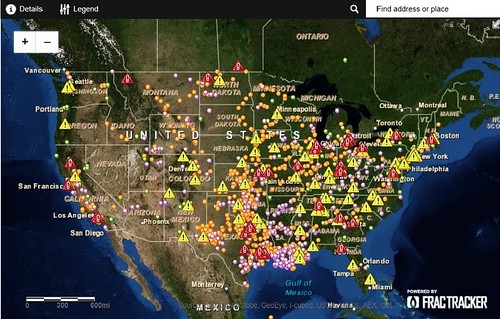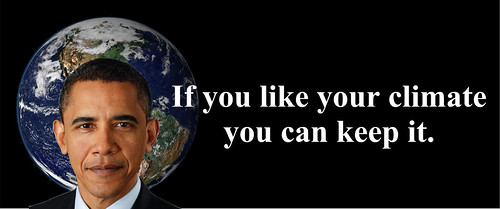(2 pm. – promoted by ek hornbeck)
Do you live near a railroad line? How about a pipeline? You might want to check into your proximity to those things.
Because America is the new Saudi Arabia, soon to be the world’s number one oil producer, the infrastructure that used to carry our energy products around is straining to meet the demand created by the new production.
This pressure is translating into pipeline accidents which are shockingly destructive. There are on average 1.6 pipeline accidents a day in the US, and the rate of pipeline accidents in Canada has doubled in the past decade. There are also rail disasters, like the recent Lac Megantic rail tanker explosion which killed 47 people and devastated a small town and the recent explosion in rural Alabama when a train carrying 2.7 million gallons of North Dakota crude oil derailed and exploded, sending up 300 foot flames.

Map of US Pipeline Accidents January 1, 2010 to March 29, 2013
Even pipeline regulators say they wouldn’t live near a pipeline:
A federal pipeline safety official admitted on camera recently that he made a point of ensuring his home wasn’t in the path of any pipelines before buying it, and that he wouldn’t advise anyone to build in the path of a pipeline. …
“Here is what I did when I bought my house – I looked on all the maps, I looked for all the well holes. I found there is nothing around me but dry holes and no pipelines. And it’s not because I’m afraid of pipelines, it’s not because I think something will happen. It’s because something could happen. … You’re always better off, if you have a choice….”
Energy giants need to get gas and chemicals to process their raw product to transport it to a refinery. Since US demand for petroleum products has been in decline since 2005 they also want to transport the refined product to a port in order to reach a higher paying market, which is why energy giants like Exxon are presssuring Congress to lift the US export ban on oil and other energy products like natural gas. Naturally, the President Obama has installed a friend of the energy giants as Secretary of the Department of Energy who is in favor of enormous profits for greedy polluters exports of energy products.
Taken together with natural gas, the US is awash in domestic fossil fuels that are largely stranded in North America, and is now in a position to reconsider its scarcity-based energy policies.
Should the export ban be lifted, there will be even more pressure on the energy transportation infrastructure and, hence, more danger for Americans living near pipelines, rail lines and roads where there will be increased truck traffic.
Another toxic legacy of Enron
 In a remarkable series of articles about the Lac Megantic disaster in Canada, the Globe and Mail explains how rail transport of oil products by rail came to be a largely unregulated danger to the public, courtesy of “the smartest guys in the room:”
In a remarkable series of articles about the Lac Megantic disaster in Canada, the Globe and Mail explains how rail transport of oil products by rail came to be a largely unregulated danger to the public, courtesy of “the smartest guys in the room:”
Enron Oil and Gas, or EOG Resources as it is now known, was among the first energy producers to begin exploiting the rich Bakken oil reserves that straddle much of North Dakota and parts of southern Manitoba and Saskatchewan.
But EOG had a problem: It needed a way to get that oil to refineries.
New pipelines took years to build, but trains were a relatively quick and easy solution. The tracks were already in place and the railroad companies were eager for new business. Although oil had never been shipped in large quantities by rail – in 2008 not a single barrel of oil produced in North Dakota left by train – there was no reason it couldn’t be, EOG believed.
In the early 1900s, the railway industry came up with a new concept to move large quantities of grain, called the unit train. These were trains of 80 to 100 cars, comprised entirely of the same product, which travelled on an express route from prairie to port as a way to speed up commerce. Although unit trains were historically used primarily for non-hazardous materials, EOG saw no reason why it couldn’t move 100 cars of oil quickly down the tracks. Regulators saw no problem with it either. …
According to interviews with rail industry personnel and former hazardous materials inspectors, neither Transport Canada nor the U.S. Department of Transportation differentiated between the danger of moving a single car filled with crude oil, and moving a train carrying 100 cars of oil. The industry changed, but the rules overseeing it didn’t, said a former top rail inspector. …
Internal U.S. government documents probing tanker car explosions in 2012 show the Washington-based National Transportation Safety Board was not only aware of potential problems, but concerned about the possibility of a major accident caused by oil unit trains. And if such a derailment were to occur, the board feared the consequences could be exponentially bigger, given the amount of crude being transported.
With the “increasing number of unit train shipments” happening in North America, “the risks are greater because of high concentrations of hazardous materials,” warned the documents, which were part of an internal report. “Existing standards and regulations [are] insufficient.”
So, Obama’s NTSB is well aware of the problem, but has done nothing about it. Meanwhile, the crude by rail industry is booming:
Despite an announcement this week from the Montreal, Maine and Atlantic Railway (MMA)-the company responsible for last month’s lethal train derailment in the small Canadian town of Lac-Mégantic-that it will discontinue its transportation of oil, other railway companies, seeing an opportunity, are likely to pick up the pace of their own rail shipments. …
“While we’re glad that MMA will no longer be transporting Bakken crude,” Meaghan Lasala of 350 Maine told Common Dreams, “we have concerns that those shipments will be picked up by other rail lines like Pan Am that are equally unsafe.” The New England-based Pan Am rail company is “already transporting oil on outdated and unregulated infrastructure,” said Lasala. “An additional increase in these shipments will only increase risks to our communities.” …
Both crude and tar sands oil transport by way of rail is increasing in other parts of Canada and the U.S. as well.
The Canadian company Gibson Energy Inc. and the U.S. Development Group (USDG) announced Tuesday their plan to build a 140,000-barrel-per-day terminal in Hardisty, Alberta-the site of Canada’s massive tar sands fields-to ship toxic oil products by rail throughout North America.
As it turns out, all things considered, pipelines, while not acceptably safe, are the safest of the alternate means of transport.
Obama fast tracks other pipelines
Climate activists have been doing great work trying to explain to President Obama, Congress and anybody else that will listen, that the best thing to do with the abundance of carbon-based fuel resources is to leave them in the ground. Greedy energy giant corporate polluters have kept themselves busy stuffing money into legislators’ pockets and getting industry friendly people appointed as regulators, when they’re not busy incinerating people, of course.
President Obama has busied himself by creating a public spectacle with his dithering over whether to implement a portion of the Keystone XL pipeline (he already approved another segment of it, which is in final preparations for coming online now) and has fast-tracked a wide variety of other pipeline projects:
Even as President Obama cast a veneer of caution over the Keystone pipeline’s northern half, he quietly expedited dozens of similar projects
The subject of a large amount of grassroots resistance from groups such as Great Plains Tar Sands Resistance and the Tar Sands Blockade, the Gulf Coast Pipeline Project – when push comes to shove – is only the tip of the iceberg.
That’s because Obama’s order also called for expedited permitting and review of all domestic infrastructure projects – including but not limited to pipelines – as a reaction to the Keystone XL resistance. …
[M]any key pipeline and oil and gas industry marketing projects are currently up for expedited review, making up for – and by far eclipsing – the capacity of Keystone XL’s northern half. The original TransCanada Keystone pipeline – as is – already directly connects to Cushing from Alberta, making XL (short for “extension line”) essentially obsolete. …
[And Obama has turned the heat up under his regulatory agencies to accommodate hs corporate climate destroyer buddies:]
On May 17, 2013, President Obama issued an updated memorandum titled, “Modernizing Federal Infrastructure Review and Permitting Regulations, Policies, and Procedures.”
Citing his March 2012 executive order as precedent, this memo called for cutting the time it takes to approve major infrastructure projects – pipelines included – in half.
Imagine that, the Keystone XL northern half has been a wonderful distraction for Mr. Obama to keep the environmental community busy while he takes care of business for his friends. Sadly, many in the environmental community haven’t picked up on Mr. Obama’s subterfuge and continue to assist him in creating a political distraction that keeps up a false appearance that Mr. Obama is heroically struggling with the issue while Keystone XL is losing customers who have made other arrangements.
While Obama snuggles up with the carbon energy industry, he continues to undermine global agreements on carbon that could hurt industry profits but are necessary for our survival on the planet.

So, if you need another reminder of just how little the economic interests that are gaining from the current energy boom in the US and Canada care about the health and wellbeing of average citizens, definitely take a peek into whether you live near a railway or pipeline that carries corrosive, explosive, toxic oil products. On the other hand, it would be good not to let it distract us from the core issue that our government cannot act in our interests as regards either public safety or climate change (which is the biggest public safety issue of all) until we can wrest it from the hands of those who have purchased it.
“Dear future generations: Please accept our apologies. We were rolling drunk on petroleum.”
-― Kurt Vonnegut

Recent Comments